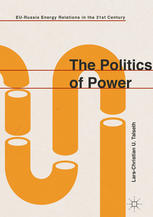

Most ebook files are in PDF format, so you can easily read them using various software such as Foxit Reader or directly on the Google Chrome browser.
Some ebook files are released by publishers in other formats such as .awz, .mobi, .epub, .fb2, etc. You may need to install specific software to read these formats on mobile/PC, such as Calibre.
Please read the tutorial at this link: https://ebookbell.com/faq
We offer FREE conversion to the popular formats you request; however, this may take some time. Therefore, right after payment, please email us, and we will try to provide the service as quickly as possible.
For some exceptional file formats or broken links (if any), please refrain from opening any disputes. Instead, email us first, and we will try to assist within a maximum of 6 hours.
EbookBell Team

4.0
76 reviewsThis book sheds new light on the complex EU-Russia relationship, by providing the first comprehensive account of the EU-Russia Energy Dialogue. The author examines why Moscow and Brussels have failed to cooperate in this crucial area of interdependence. By invoking constructivism and Mikhail Bakhtin’s concept of dialogue, and drawing on dozens of interviews with Russian and European officials, Talseth argues that the Energy Dialogue was unsuccessful because its interlocutors failed to come up with a common narrative for cooperation. Evidence suggests that the collapse of the Energy Dialogue was not pre-determined and initially there was a great deal of optimism and goodwill. Ultimately, the outcome of the Energy Dialogue was shaped by the unfolding time-space of Russo-European relations.